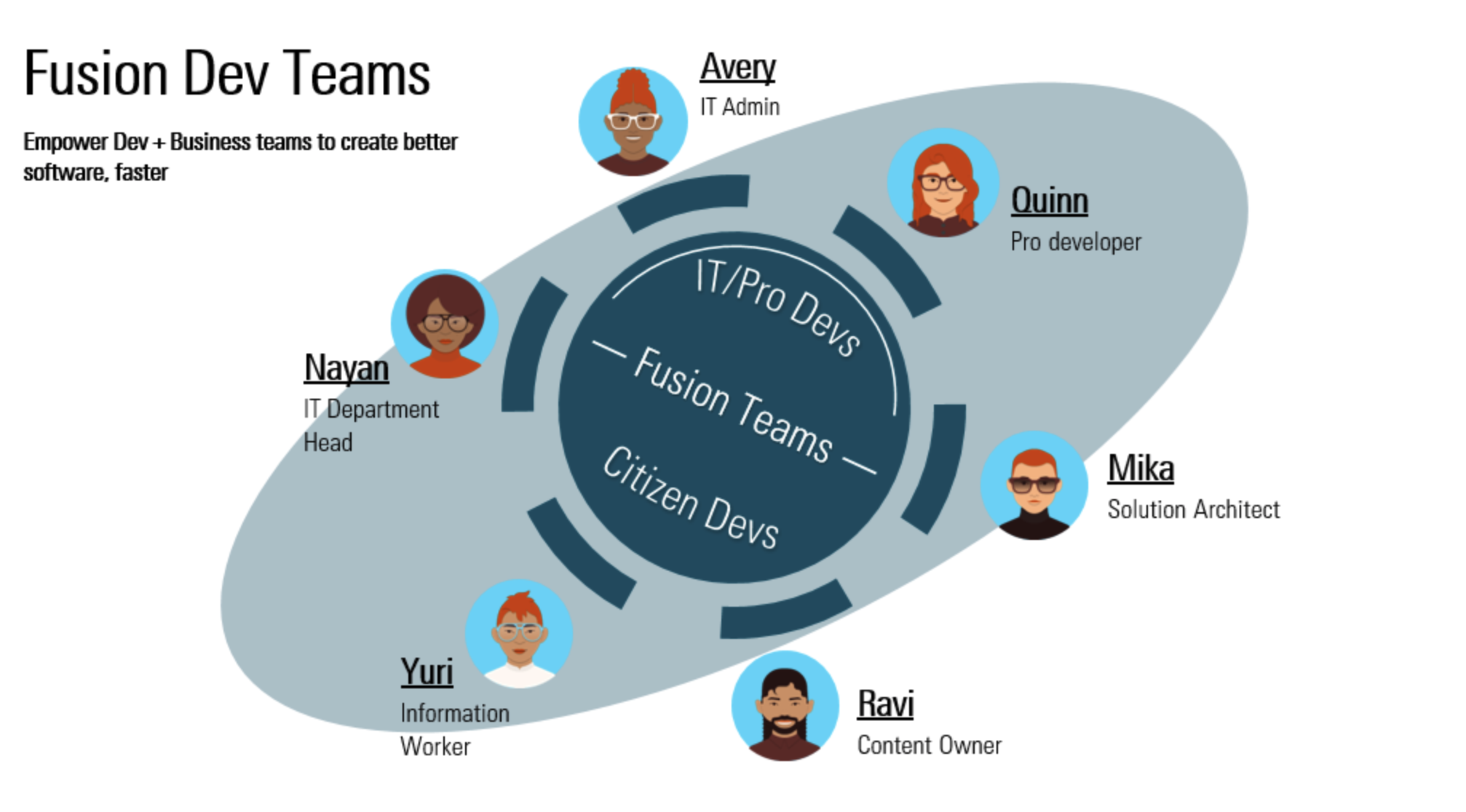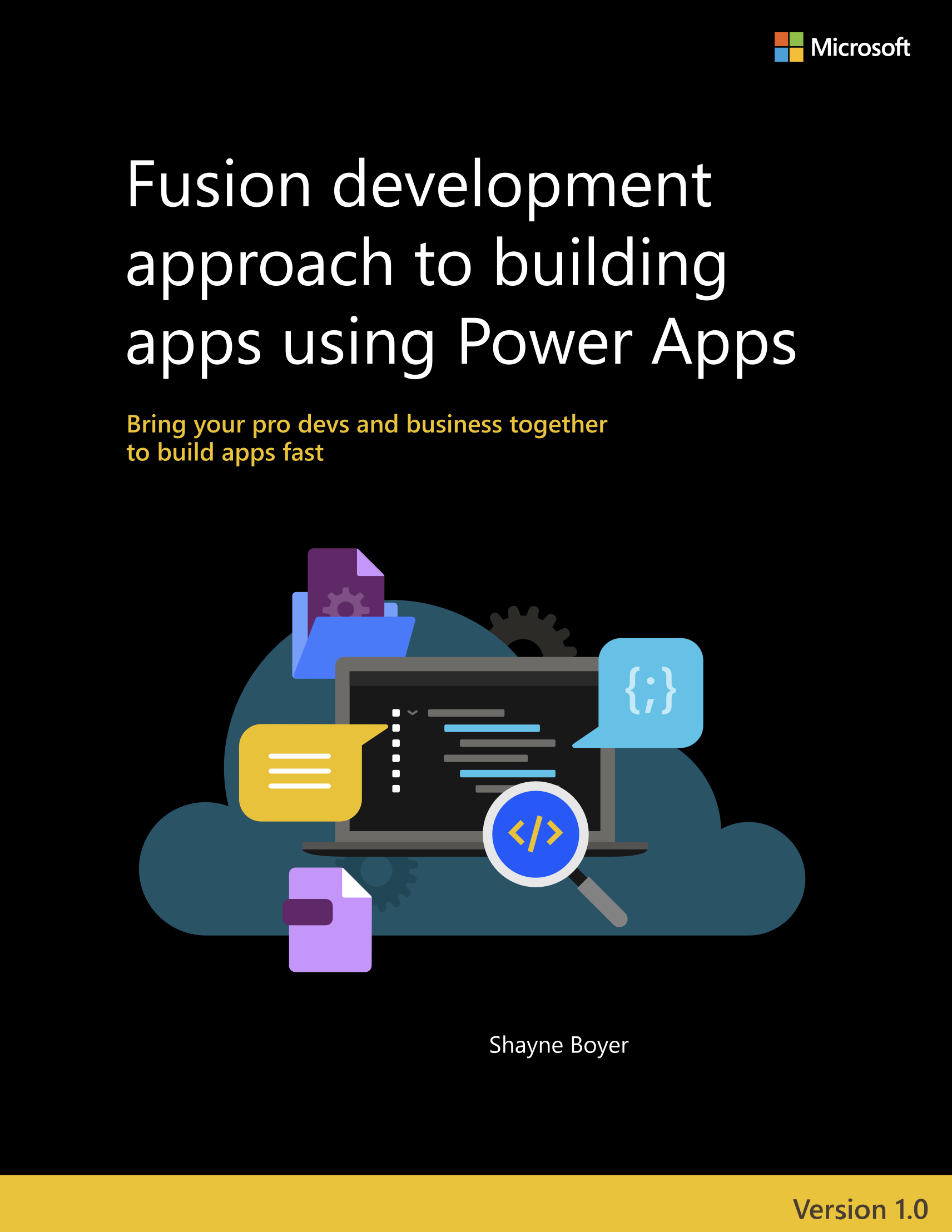Fusion development
A New Model for Digital Delivery. In a rapidly changing business environment, time is of the essence. Failure to be agile enough to exploit a narrow window of opportunity can be costly.
The fusion development approach values the knowledge and abilities of different members across the multi-disciplinary team gaining significant synergies through efficient communication, autonomy, and development in an agile fashion.
What is Fusion Development?
Fusion development is a software development approach that combines low-code or no-code development platforms with traditional programming languages and tools. The goal of fusion development is to provide developers with a unified development environment that can leverage the strengths of both low-code and traditional development approaches.In a fusion development environment, developers can use low-code or no-code platforms to quickly develop and deploy simple applications or features, while also having access to traditional development tools and languages for more complex or customized solutions. This can help to improve productivity, accelerate application delivery, and reduce development costs.
Fusion development can also enable a wider range of developers, including citizen developers, business analysts, and other non-technical users, to participate in the software development process. This can help to foster collaboration and innovation, and enable organizations to better meet the needs of their users and customers.
Fusion development represents a hybrid approach to software development that can provide organizations with greater agility, flexibility, and innovation, while also leveraging the strengths of both low-code and traditional development approaches.
What is Fusion development?
Multidisciplinary teams that blend technology and other types of domain expertise and are often designed to deliver products rather than projects.— Gartner
Fusion development allows your business to build better applications, faster by bringing together professional developers with citizen, or low-code, developers.
— Microsoft
Fusion Development is a software development approach that combines traditional and modern development techniques to create custom applications that are scalable, secure, and integrated with existing systems.
Fusion Development allows organizations to leverage their existing investments in technology while embracing modern development practices, resulting in applications that are more agile, efficient, and scalable.
Techniques used in Fusion Development include API integration, microservices, cloud computing, low-code platforms, and agile methodologies.
Skills needed for Fusion Development include knowledge of programming languages, understanding of enterprise architecture, API design and integration, familiarity with cloud computing and DevOps, and proficiency with low-code platforms.
Fusion Development can be used to develop a wide range of applications, including custom enterprise applications, web applications, mobile applications, and integrations between existing systems.
Some common challenges associated with Fusion Development include complexity and interoperability issues, ensuring security and compliance, managing data privacy and governance, and maintaining quality of code.
Organizations can implement Fusion Development by identifying business needs and goals, creating a strategy that combines traditional and modern development techniques, selecting the right technology and tools, and investing in training and resources.
IT plays a key role in Fusion Development by providing technical expertise, ensuring security and compliance, maintaining governance and standards, and supporting the development team throughout the project.
Fusion Development is often seen as a key component of digital transformation, as it enables organizations to leverage their existing technology investments while embracing modern development practices to create applications that support their digital initiatives.
Examples of successful Fusion Development initiatives include applications developed by companies like Coca-Cola, Siemens, and FedEx, as well as projects that have integrated legacy systems with modern cloud platforms and technologies.
Ebook: Fusion development approach to building apps using Power Apps
Related:
## ToDo ##
- Support Us... →
- Low-code and No-code Development
- Integration of Legacy and Cloud Systems
- API-First Design and Development
- Microservices and Service-Oriented Architecture (SOA)
- Event-Driven Architecture (EDA)
- DevOps and Agile Methodologies
- Cloud Computing and Multi-Cloud Strategy
- Business Process Automation and Optimization
- Machine Learning and Artificial Intelligence
- Internet of Things (IoT)
- Digital Transformation and Innovation
- Citizen Development and Collaboration
- User-Centered Design and User Experience (UX)
- Security and Compliance
- Data Management and Governance
- Hybrid Mobile App Development
- Enterprise App Development and Deployment
- Low-Code Application Platforms (LCAP)
- RAD (Rapid Application Development)

